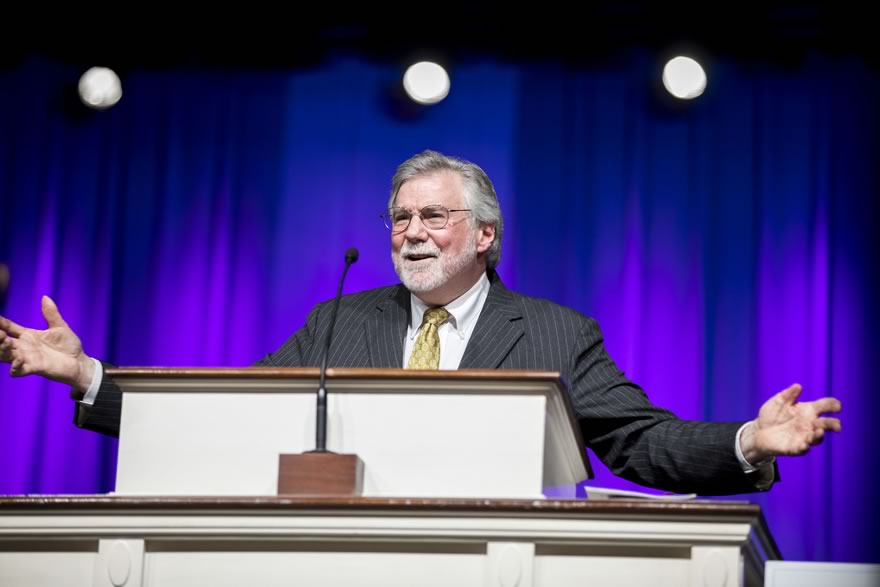Men ordinarily enter ministry while they are young. They enjoy the energy and vitality that accompany youth. Many are in the first years of marriage and parenting. Life is in front of them, and they often lack a sense of vulnerability when it comes to unforeseen tragedy.
This dynamic isn’t unique to ministry. Most young adults don’t carry life insurance or disability policies. Yet, insurance claim studies indicate that the odds of becoming disabled for ninety days or longer are much greater than dying during one’s work years.
Just ask Joe Novenson, pastor of senior adults at Lookout Mountain Presbyterian Church. Joe suffered a life-altering accident that left him disabled for almost two years. We asked Joe about his experience with disability and how it reshaped his view of being prepared for unexpected events.
What was your experience that led to your disability?
The year was 1975. I was 21 years old and had been married to my wife Barb for just two months. Two months after we had said to each other “for better or for worse,” my wife stayed with me through what was, and may to this day be, the worst that we faced.
Before I was to begin an assistant chaplain’s job at a college; I wanted to earn some money. So, I took a job with Kelly Temporary Labor Service and was assigned to a sheet metal factory. After 10 minutes of working in the sheet metal factory, my right hand was caught in sheet metal rollers. I intuitively, in an attempt to rescue my right hand, threw in my left hand to try to pull the right hand out. As a result, both hands were crushed. I screamed so loud that my ears rang from my own voice’s volume.
I was sent to St Luke’s hospital where I began the first of 17 surgeries to rebuild my hands. The surgeon took bone from my hip and flesh from my chest and tendons from my wrists and rebuilt my hands. And I will be the debtor to that doctor for the first several billion years of eternity.
The surgeries were intermittent. They would work on one hand and then the other and I had to hold both my hands above my head for one year. I know that sounds like a preacher exaggeration but it’s not. After crush injuries, if you lower your hands below your heart; the swelling is almost immediate and the pain is astronomical. So I slept with my hands above my head. I would lie in the bed on my back and my wife would build an “igloo” of white pillows and I would rest my hand on top of the pillows.
How did God use this experience in your life?
I had completed one year of Westminster Seminary at the time. I still was not a convinced reformed thinker at this time. After the accident, my father built me a desk at which I could sit and place my elbows at ear level. I would put books in a little tray that he had built for me and I would turn the pages with a pencil in my mouth and the eraser end against the page. That’s how I read Calvin’s Institutes. The hand accident was really the turning point that made me reformed and I entered the Presbyterian Church in America after that.
How did you pay for all the medical care you received?
Barb and I were newlyweds and were in a financial crack in both policy and provision. We were so poor that we applied for a Sears credit card and didn’t qualify. But we also had enough money saved for our marriage that we didn’t qualify for social assistance. On top of that, the laws of the state classified all of my surgeries as “plastic.” And, in most categories, plastic surgery is seen as elective and is uncovered by workman’s compensation. I had between a quarter and half a million dollars worth of medical debt and no ability to pay. It took seven years of legal activity and an appeal to the supreme court before I could pay my bills.
I did not have disability insurance and if I had not received grace and mercy from the physician who did the surgeries and the hospital itself, I don’t know what I would have done. I could not pay my bills, period.
What’s your advice to pastors and church staff?
When it comes to our own fragility and planning for disability, I think there are two proofs of the word of God that are underestimated here in the West: the full extent of the fallen world and the doctrine of finitude.
The doctrine of the fall is intense. I think the recent months with COVID have taught us all that we are not as strong and secure as we think we are. Our finitude makes our lives far more tenuous in this fallen world. Good stewardship requires preparation for the difficulty of living in a fallen world. We need to take our finitude seriously in order to rightly steward our lives when we are called by God to face great trials. If you think you don’t need disability insurance, you’ve underestimated the doctrine of the fall and you’ve underestimated your own finitude.
We are thankful to Joe Novenson for his willingness to share insights from his personal experience. PCA Retirement & Benefits partners with ministries to provide long-term disability as well as combined short and long-term disability plans for their staff.
Follow the links above to learn more about our disability plans and click the button below to take the next step to enroll.
Watch Joe Novenson share his story from our 2018 General Assembly report.
Geneva Benefits Group serves those who serve others, providing practical support for the financial, physical, and mental wellbeing of people who work in full-time ministry.
